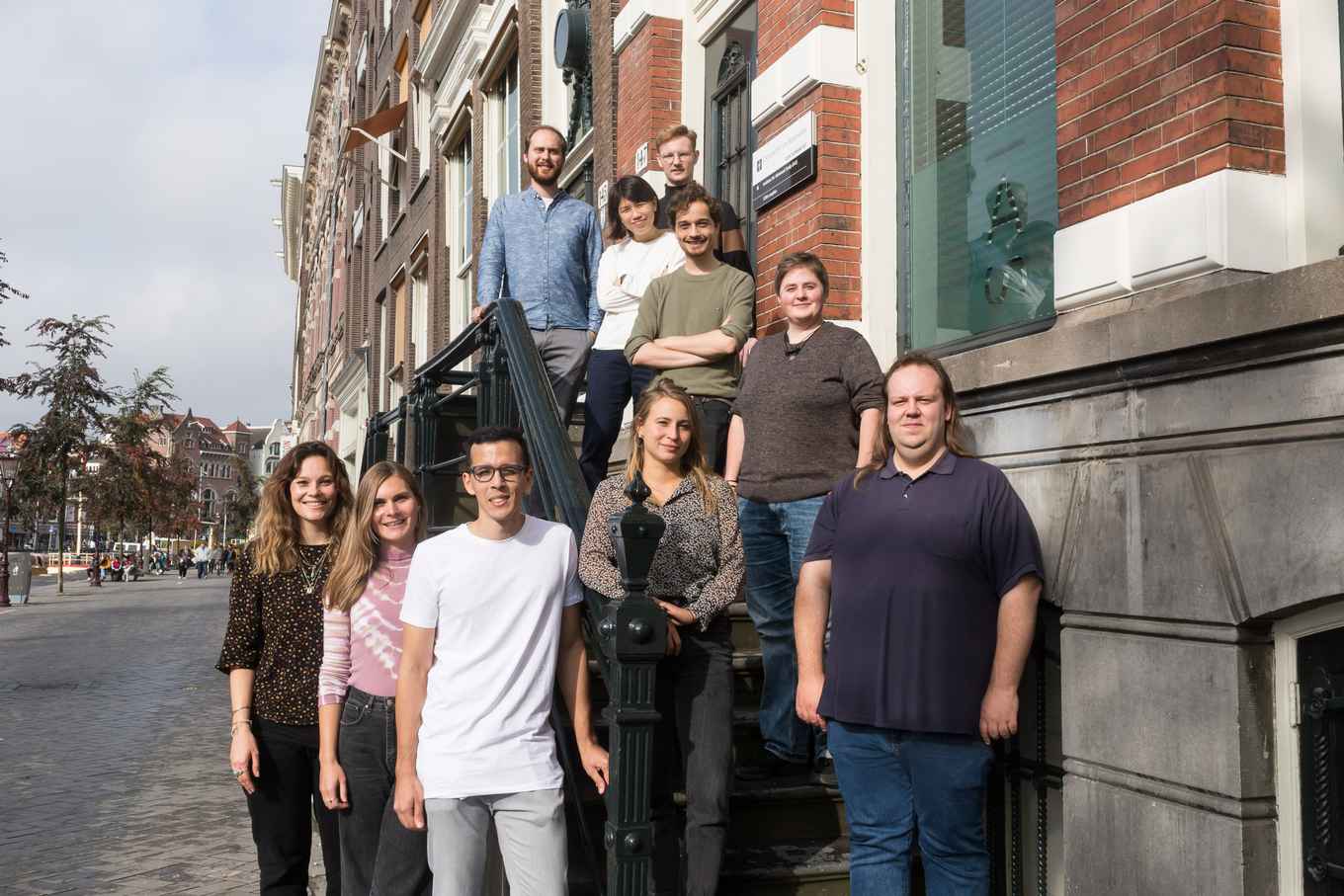IAS hosts celebration for interdisciplinary PhD candidates
22 October 2019

Vital interchange between education and research
The IDA was set up because, while interdisciplinarity sits high on the agenda of the UvA, the vital interchange between education and research can be hard to guarantee. As Lucy Wenting, Director of Education at the UvA’s Institute for Interdisciplinary Studies, said at the event: ‘Finding academics who can teach students to do interdisciplinary research is one of our biggest challenges. Helping the students to understand each other’s research languages, and to be open to the possibility of doing so, is the key. Interdisciplinary PhD candidates like those gathered here today are vital to this process. You are our future.’
In order to adapt to these needs, the IDA was born, initially offering 10-12 PhD places for those pursuing innovative interdisciplinary research. The 11 future PhDs from a hugely diverse array of backgrounds came together to present what this interdisciplinary research will look like when put into practice. From the ways that personal attitudes may have an effect on judicial decisions to the digitisation of fertility using apps to whether altruism developed as a way of helping to attract the opposite sex – the researchers will examine areas that require input from more than one of the traditional disciplines.
A new scientific method
With the link between education and research secured, it is hoped that a virtuous circle will be created, where interdisciplinary programmes will in turn be a key source of innovative research. As Peter Sloot, Scientific Director of the UvA’s Institute for Advanced Studies states, interdisciplinary science is urgently needed: ‘In today’s complex world, where everything is interwoven with everything else, and where cause and effect are often hard to unravel, the most pressing societal questions cannot be studied in isolation.’ Sloot adds: ‘We need a new scientific method to unlock the treasures of our traditional mono-disciplinary silos, and we need it now!’
Following the presentations by each of the candidates on their chosen subjects, the group came together for a wide-ranging discussion of the challenges and possibilities of interdisciplinary research. How to navigate different departments with different ways of working, how to combine methodologies from diverse subjects which on the face of it have little in common, how to integrate possibly conflicting feedback from supervisors in entirely different disciplines. It was agreed that there should be regular meetings of the candidates to stimulate the exchange of knowledge, contacts and ideas.
The full list of 11 PhD candidates and their studies is:
- Ellen Algera - The Digitisation of Fertility: Renegotiating Women’s Health, Knowledge and Care (Faculty of Science and Faculty of Social and Behavioural Sciences)
- Dajo Boog - The Attractiveness of Altruism: Partner Choice and the Evolution of Cooperation (Faculty of Science and Faculty of Social and Behavioural Sciences)
- Damien Fleur - Metacognitive Development in Early Adulthood (Faculty of Science and Faculty of Social and Behavioural Sciences)
- Chris Jungerius - What Do You Expect to See? the Neural Correlates of Interactions Between Memory and Perception (Faculty of Science and Faculty of Social and Behavioural Sciences)
- Ivar Kolvoort - Unravelling the Causal Mind: How Causation Shapes Human Cognition (Faculty of Science and Faculty of Social and Behavioural Sciences)
- Jessica Loke - Brain Representations from Sensory Perception to Memory (Faculty of Science and Faculty of Social and Behavioural Sciences)
- Saskia Leymann -The Sound of Political Irony: Cognitive Processing and Communicative Effects of Figurative Language (Faculty of Humanities and Faculty of Science)
- Elke Olthuis - Judges and Politics: A Precarious Balance (Amsterdam Law School and Faculty of Social and Behavioural Sciences)
- Joao Patriota - Sensory Processing During Sleep: A Key to Memory Manipulation (Faculty of Science and Faculty of Social and Behavioural Sciences)
- Rosanne Tuip - MultiSensory Integration and Consciousness: MuSIC (Faculty of Science and Faculty of Social and Behavioural Sciences)
- Sofie te Wierik - The Governance of Green and Atmospheric Water (Faculty of Science and Faculty of Social and Behavioural Sciences)